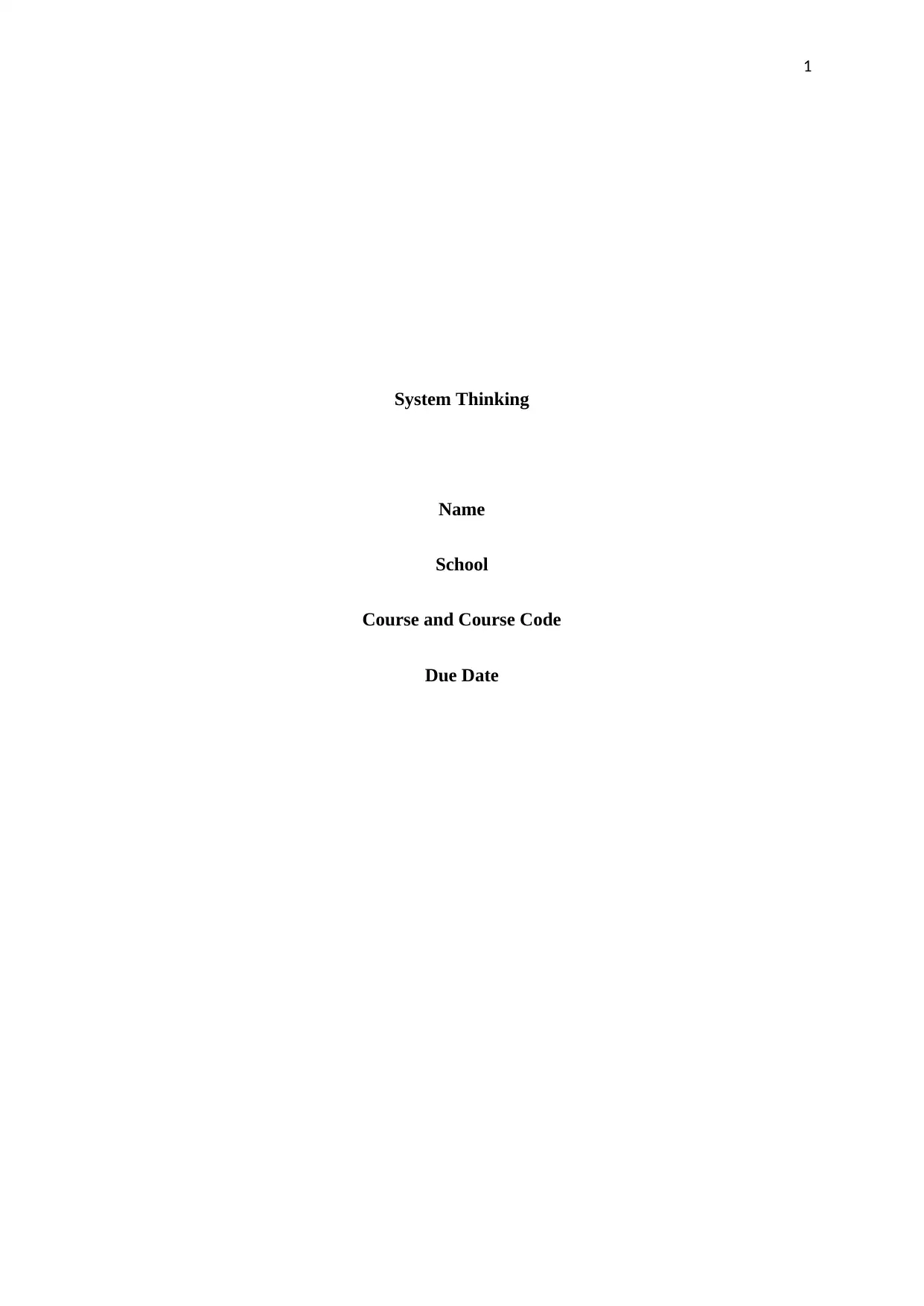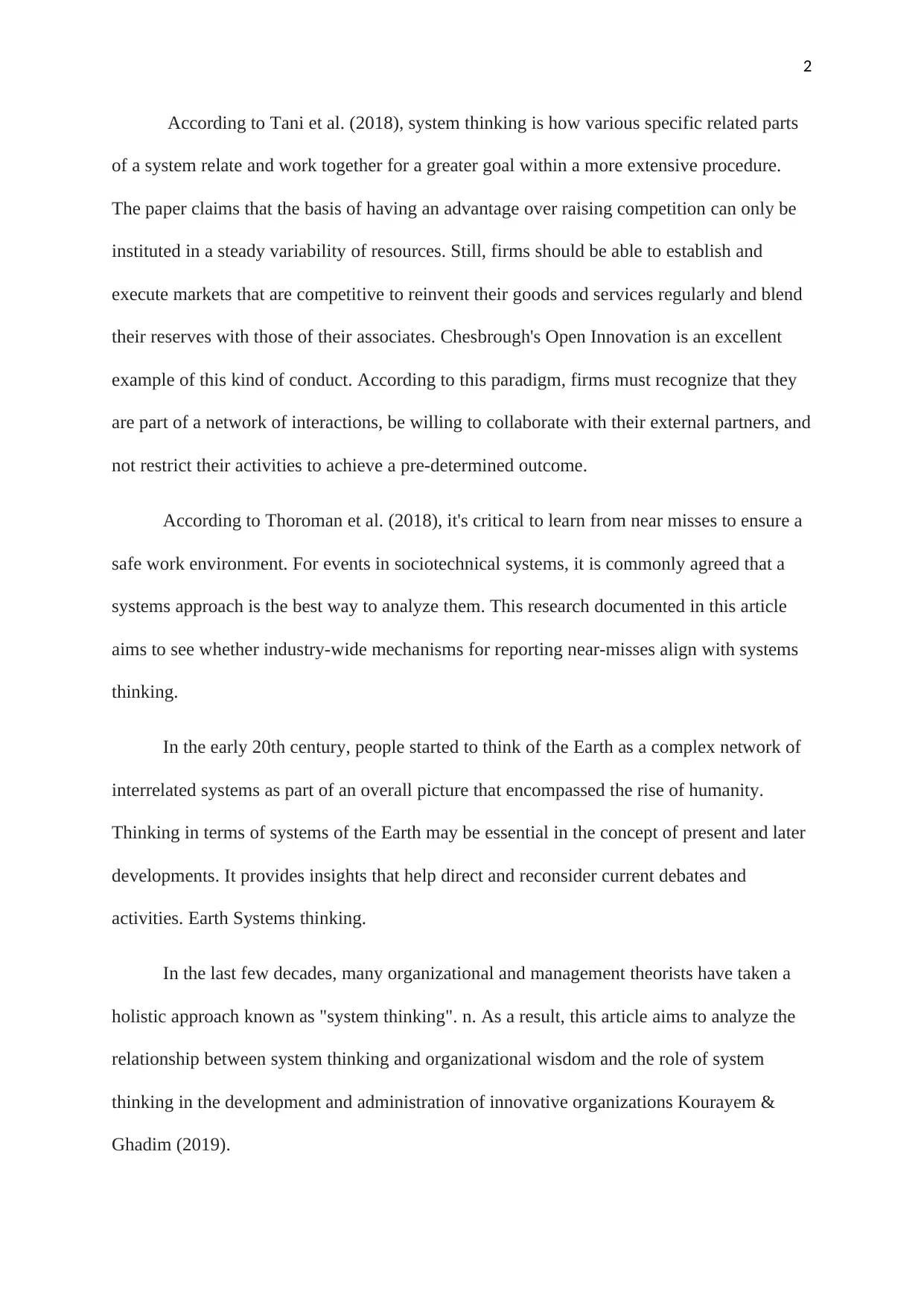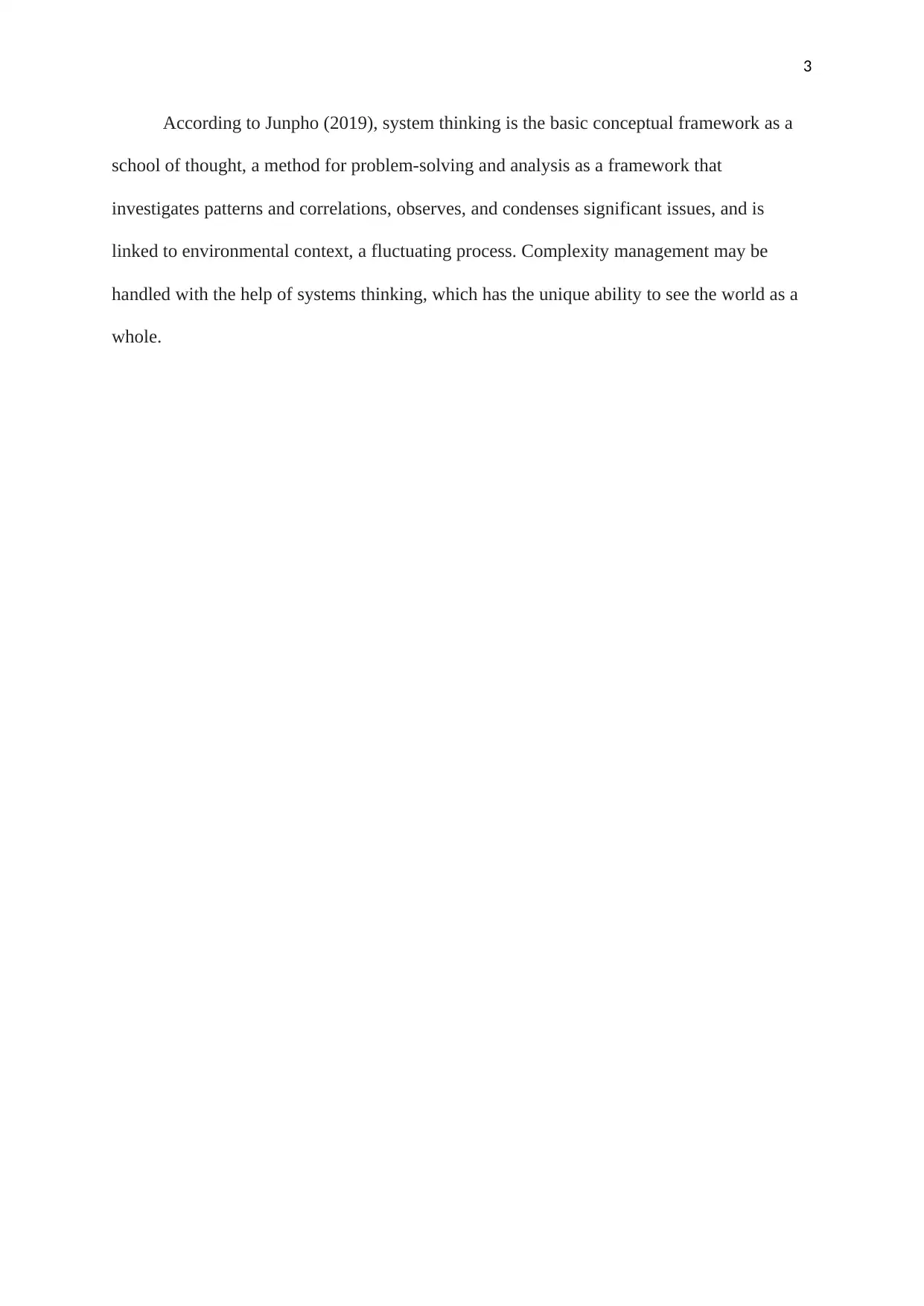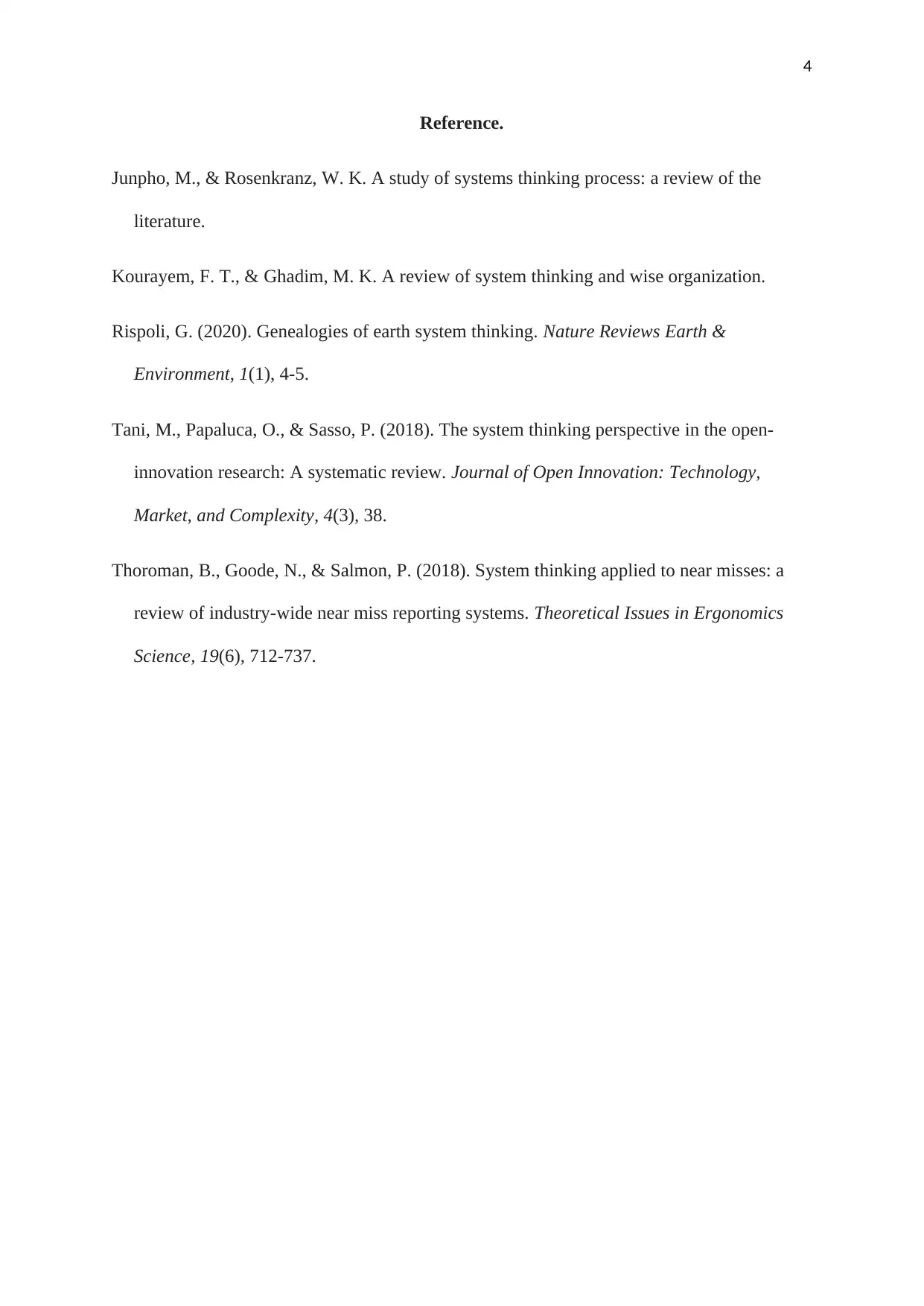Analysis of System Thinking in Modern Organizations Report
VerifiedAdded on 2022/10/03
|4
|592
|37
Report
AI Summary
This report delves into the concept of system thinking, exploring its significance in various contexts, including leadership, organizational wisdom, and open innovation. The analysis draws upon several scholarly sources, such as Tani et al. (2018), Thoroman et al. (2018), and Kourayem & Ghadim (2019), to illustrate how system thinking facilitates a holistic approach to problem-solving and decision-making. The report examines the application of system thinking in analyzing near-miss events, promoting safe work environments, and fostering collaborative frameworks like open innovation. Furthermore, it discusses the importance of understanding Earth systems as a complex network of interconnected components, offering insights into current debates and future developments. By synthesizing the insights from various studies, the report highlights the crucial role of system thinking in enhancing organizational adaptability, promoting innovation, and managing complexity effectively. The report emphasizes the importance of viewing organizations as interconnected systems and leveraging this perspective to achieve strategic objectives.
1 out of 4










![[object Object]](/_next/static/media/star-bottom.7253800d.svg)